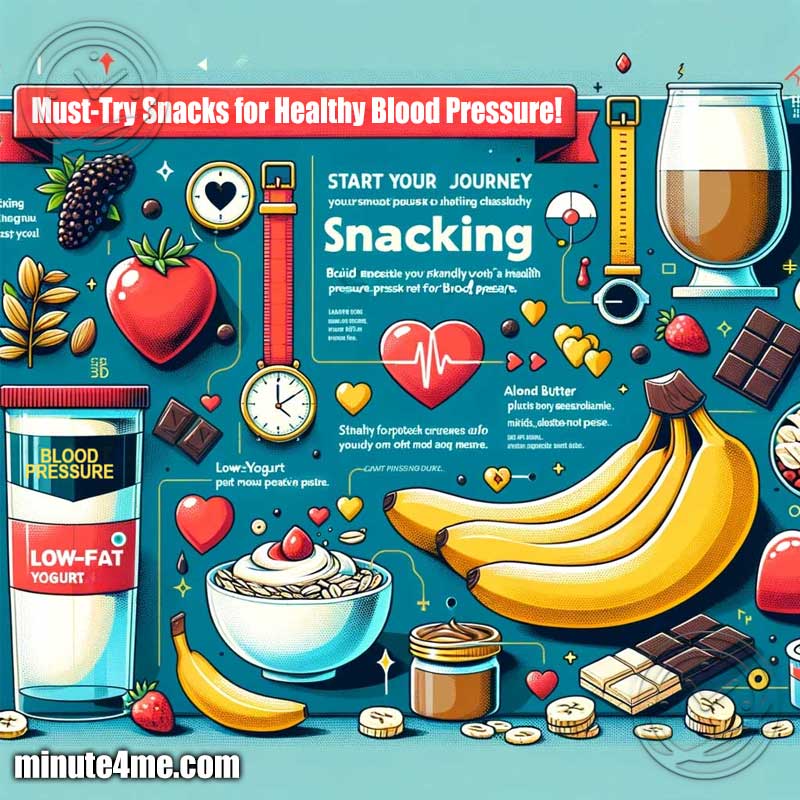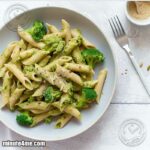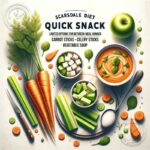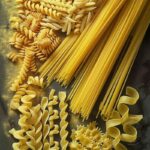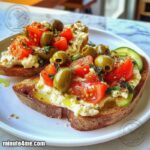Introduction
Eating between meals doesn’t have to be a dietary misstep.
In fact, when done right, snacking can be a strategic part of managing your blood pressure.
The secret lies in selecting snacks rich in potassium, fiber, and hydration – key nutrients that can positively affect your blood pressure levels.
This guide will navigate through the choices that can make snacking not just enjoyable but also beneficial for your heart health.
By understanding the impact of these nutrients and how to incorporate them into your snacks, you can turn your between-meal nibbles into powerful tools for blood pressure management.
Blood Pressure Friendly Snacks
When it comes to snacking for blood pressure health, diversity is your friend.
A variety of snacks can cater to different tastes while providing the nutritional benefits needed to support heart health.
The focus should be on whole, nutrient-dense foods that contribute to a balanced diet.
Here’s a closer look at the categories and specific options that can help keep your blood pressure in check:
Indulge in a culinary adventure with Flexitarian Pasta Recipes. Blend the richness of vegetarian delights with occasional meaty treats for…
Potassium-Packed Snack Choices
Potassium is a key mineral in managing blood pressure because it helps counteract the effects of sodium and eases tension in blood vessel walls.
Including potassium-rich snacks in your diet is a tasty way to support your heart health:
- Bananas: A versatile fruit that can be eaten alone or added to yogurt and smoothies.
- Oranges: Perfect for a juicy, hydrating snack.
- Berries: Strawberries, blueberries, and raspberries are rich in antioxidants as well as potassium.
- Vegetables: Incorporate spinach in a small salad or snack on cherry tomatoes for a nutrient boost.
| Snack | Potassium Content (Approximate) |
|---|---|
| 1 medium banana | 422 mg |
| 1 medium orange | 237 mg |
| 1 cup berries | 114-211 mg (varies by type) |
| 1 cup spinach | 167 mg |
These snacks not only satisfy hunger but also contribute to your daily potassium intake, making them perfect for blood pressure management.
Fiber-Filled Snacks for Blood Pressure
Fiber is essential for heart health, aiding in cholesterol management and maintaining a healthy digestive system.
High-fiber snacks can also help you feel full longer, aiding in weight management:
- Whole-Grain Crackers: Pair with a slice of low-fat cheese or a thin layer of hummus.
- Nuts and Seeds: Almonds, pistachios, and pumpkin seeds are great choices.
- Vegetables: Raw celery, carrots, and bell pepper strips are crunchy and satisfying.
| Snack | Fiber Content (Approximate) |
|---|---|
| Whole-Grain Crackers | 3g per serving |
| 1 oz Almonds | 3.5g |
| 1 cup Raw Vegetables | 2-4g (varies by type) |
By integrating these fiber-rich foods into your snack routine, you can support your digestive health while keeping your blood pressure levels in check.
Is Cornbread on the Mediterranean Diet
Uncover the tantalizing debate: Is Cornbread a Mediterranean Diet delight? Delve into the culinary crossroads where tradition meets health. Ana…
Dairy Snacks: Low-Fat Options
Low-fat dairy products are excellent sources of calcium and protein without the added risk of saturated fats.
These snacks can be a refreshing part of your snack selection:
- Low-Fat Yogurt: Opt for plain yogurt and add fresh fruit or a drizzle of honey for sweetness.
- Cottage Cheese: Pair with pineapple or pear slices for a delicious mix of savory and sweet.
Choosing low-fat dairy options provides the essential nutrients without the extra fats that can negatively impact heart health.
Nut Butter Snacks for a Healthy Heart
Nut butters are a fantastic source of healthy fats, protein, and fiber, making them an ideal choice for a heart-healthy snack.
They can be enjoyed in various ways:
- Spread on Whole-Grain Toast: For a satisfying, crunchy snack.
- Dipped with Apple Slices: For a sweet and savory treat.
- Celery Sticks: Filled with nut butter for a crunchy and creamy combination.
Nut butters offer a nutrient-dense snacking option that supports blood pressure management through their healthy fat content and protein.
Can You Eat Pasta on a Keto Diet?
Are you on a keto diet and wondering if you can still indulge in delicious pasta dishes? Discover the truth…
The Benefits of Dark Chocolate
Dark chocolate is more than just a treat; it’s packed with antioxidants and magnesium, which can help lower blood pressure.
For a heart-healthy snack, choose dark chocolate with 70% cacao or higher and enjoy it in moderation:
- A few squares of dark chocolate can satisfy your sweet tooth while providing health benefits.
- Pair with nuts or berries for an added nutrient boost.
This indulgence not only delights the palate but also contributes to your heart health when consumed as part of a balanced diet.
Hydration and Blood Pressure Control
Staying well-hydrated is a cornerstone of maintaining healthy blood pressure levels.
Water, the most effective hydrator, plays a crucial role in helping your body regulate blood pressure.
It aids in the proper functioning of your kidneys, which in turn helps manage your body’s sodium balance and supports healthy blood pressure.
Hydration is not just about drinking water; it’s about incorporating fluids and water-rich foods into your diet throughout the day.
Consider these strategies:
- Drink water regularly: Aim for 8-10 glasses daily, but remember needs can vary based on activity level and climate.
- Incorporate water-rich foods: Cucumbers, watermelons, and oranges can contribute to hydration.
- Limit caffeinated and alcoholic beverages: These can lead to dehydration and may affect blood pressure.
Reading Food Labels
Making informed choices about the snacks you consume is easier when you understand food labels.
Labels can tell you a lot about the nutritional content of your food, including sodium, fats, sugars, and key nutrients.
To support healthy blood pressure, focus on these label-reading strategies:
- Check the sodium content: Opt for snacks with less than 140 mg of sodium per serving.
- Look for whole, minimally processed ingredients: The fewer the ingredients, and the more recognizable they are, the better.
- Avoid trans fats and limit saturated fats: These fats can negatively impact heart health.
- Watch for added sugars: Choose snacks with little to no added sugars.
| Nutrient | What to Look For |
|---|---|
| Sodium | Less than 140 mg per serving |
| Saturated Fats | Low amounts, prefer unsaturated fats |
| Added Sugars | Minimal to none |
| Fiber | Higher fiber content is preferable |
Fresh vs. Processed: Making the Right Choice
The choice between fresh and processed foods can significantly impact your blood pressure and overall health.
Fresh foods are typically richer in nutrients and contain fewer additives, making them a superior choice for a heart-healthy diet.
Processed foods, on the other hand, often come with high levels of sodium, added sugars, and unhealthy fats.
To prioritize fresh foods:
- Choose fresh fruits and vegetables: They are high in potassium, fiber, and essential nutrients.
- Select fresh meats and fish over canned or processed versions to avoid added sodium and preservatives.
- Prepare homemade snacks: This ensures control over ingredients and avoids unnecessary additives.
Emphasizing fresh foods in your diet supports not only blood pressure management but also overall health by providing your body with the nutrients it needs to function optimally.
Final Thoughts
Snacking with a focus on blood pressure health is about more than just avoiding salt.
It’s about choosing snacks that are rich in nutrients beneficial for heart health, like potassium, fiber, and healthy fats, and ensuring you stay hydrated.
By understanding how to read food labels and making informed choices between fresh and processed foods, you can enjoy a variety of tasty, healthful snacks that contribute positively to your blood pressure and overall wellness.
Remember, the goal is to integrate these snacks into a balanced diet, alongside regular physical activity, for optimal heart health.
Making these choices consistently can lead to lasting benefits for your blood pressure and general health.
